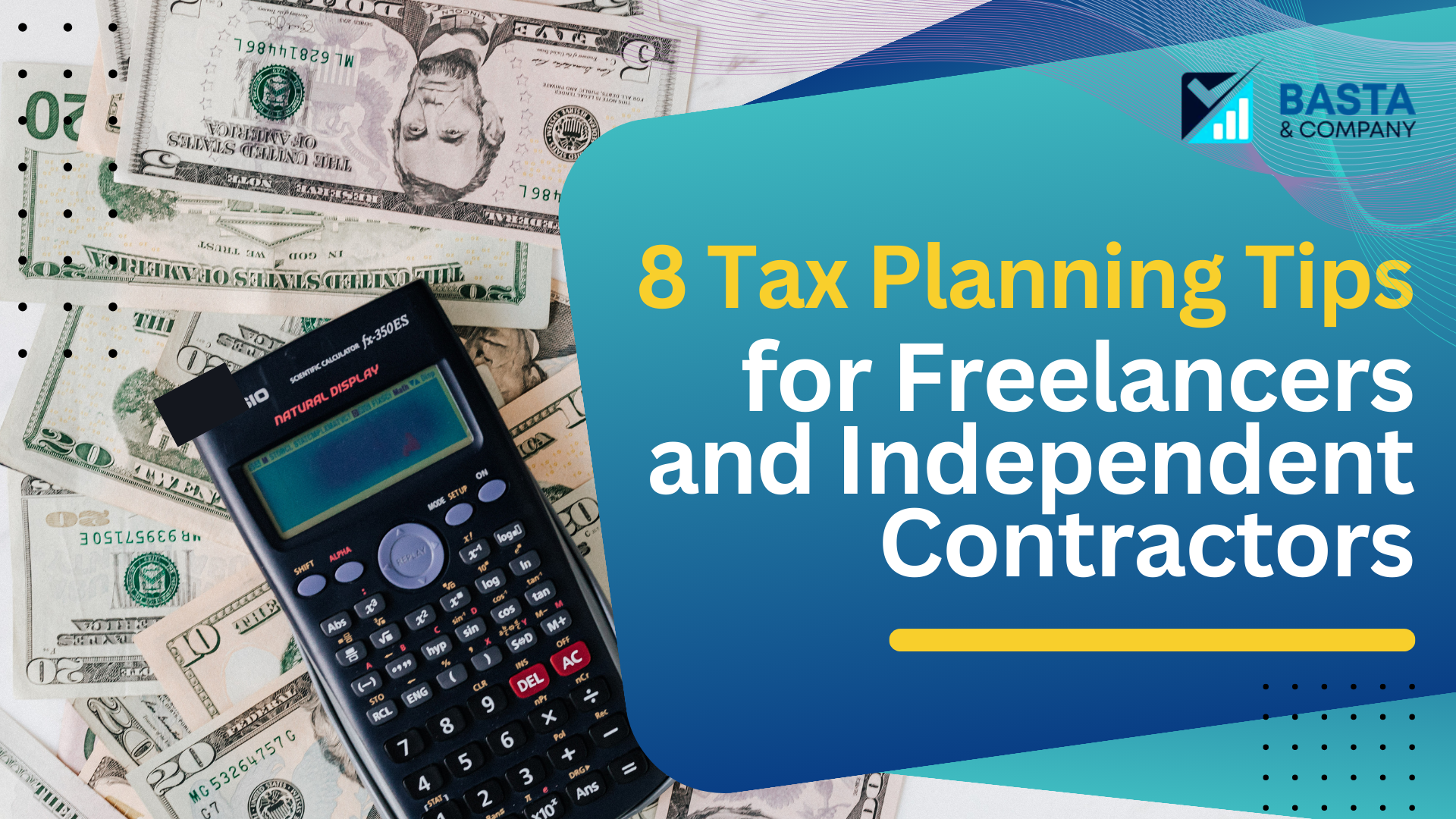
8 Tax Planning Tips for Freelancers and Independent Contractors
Webmaster • March 19th, 2025
Do you dread tax season as a freelancer? You’re not alone.
Freelancers or independent contractors enjoy flexibility and freedom during work, but they also face unique challenges, especially during tax season. Unlike traditional employees, these self-employed workers are responsible for managing their own taxes. However, without proper tax planning, they end up paying more than required or facing unexpected penalties. Is that what causes stress?
Keep reading this blog to discover how smart planning can help you keep more of your hard-earned money and avoid last-minute stress. Besides, you can check out some essential tips to stay organized, minimize your bills, and control your freelance finances. Don’t miss out on the last point!
1. Understand Your Tax Obligations: Being a freelancer or an independent contractor, you are responsible for paying all your taxes. This implies that you are accountable for calculating your taxes and paying the accurate amount. To avoid mistakes, here’s what you should know:
2. Keep Track Your Profits and Expenses: You might be very busy at work, but you should make some time out to track your profits and expenses. The best way to perform this task effectively is by maintaining a record book of all your income sources and business expenses throughout the year. This will help maximize your deductions and reduce the risk of audits.
You can certainly choose advanced tools to monitor your financial activities. A few things to track are –
3. Bookmark Helpful Resources: Indeed, paying taxes as a self-employed contractor can be complicated. But if you have quality resources, it becomes easier to find accurate information, meet deadlines, and stay compliant with California’s tax laws.
In fact, staying informed about tax rules and deadlines can save you time and costly mistakes. A few helpful resources to explore are –
4. Set Aside Income to Pay Taxes: Freelancers don’t have taxes automatically withheld from their income. Instead, they have to calculate and pay the bill. What you can do is – keep aside a portion of income to cover your tax expenses. A good thumb rule is to save 25-30% of your income for taxes. However, opening a separate account is a smart way to save the money required for paying charges.
5. Make Quarterly Tax Payments: Independent contractors in California should make estimated tax payments every quarter. The payment deadlines here are –
Paying your taxes quarterly helps you avoid a large tax bill at the end of the year. Make sure you follow this while planning your taxes.
6. Maximize Your Deductions: As a freelancer, you should understand that you can reduce taxable income through deductions. In fact, it is one of the easiest ways to save hard-earned money on taxes.
In California, some common deductions for freelancers are –
Maximizing deductions by tracking these expenses can reduce your overall tax liability.
7. Contribute to Retirement Plans: Do you know that even contributing to your retirement plans can help reduce your taxable income? Some tax deductible plans on this aspect include Solo 401(k) and SEP IRA. You must take advantage of this while planning strategically.
8. Work With a Tax Professional: We understand that tax laws in California are complicated and for a freelancer, it becomes more challenging. The best you can do is partner with a tax professional or a financial advisor who can guide you with –
Experts at CPA firms in California ensure you follow the laws and regulations while managing and maximizing your finances.
Managing taxes often feels confusing and overwhelming, leading to uncertainties. However, with smart and effective tax planning, you can avoid penalties, improve cash flow, save money for the future, and avoid stress. Remember, it’s a crucial part of managing your freelance or independent contracting business. So, either embrace the tips mentioned here or hire a tax professional and start planning early for a better financial future.

Samy Basta brings you more than 20 years experience in tax, financial, and business consulting to his role as founder of Basta & Company. His focus is primarily strategic business planning, empowering clients to set priorities, focus energy and resources, and strengthen operations. In addition, Samy and his firm provide strategic counsel, and technical insight, on a wide range of needs, including tax saving strategies, tax return compliance, as well as choice of entity.